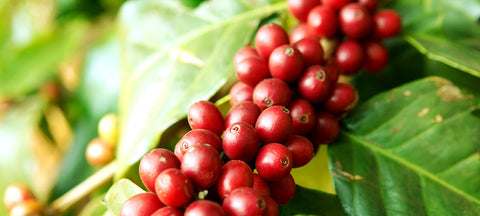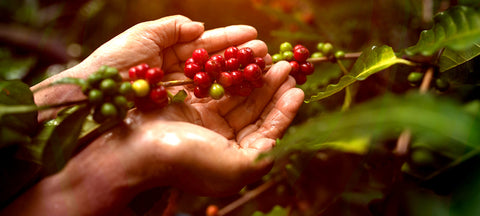Organic Coffee Farming: A Cleaner Brew for You and the Planet
One of the defining characteristics of organic coffee is that it must be grown using 100% organic fertilizers. To meet USDA organic certification standards, coffee farms must adhere to strict agricultural practices that prioritize environmental sustainability and human health.
🌱 Organic Farming Practices
Organic coffee farms use natural fertilizers such as:
-
Chicken manure
-
Coffee pulp
-
Bokashi (fermented organic matter)
-
General compost
Synthetic fertilizers and pesticides are strictly prohibited.
To manage weeds, farmers rely on eco-friendly methods like:
-
Natural gas flame weeders
-
Hand removal
-
Allowing animals to graze and eat weeds
Additionally:
-
Genetically Modified Organisms (GMOs) are not allowed.
-
Coffee is often grown in partial shade, which mimics the plant’s natural environment, protects it from harsh sunlight, and promotes biodiversity by offering shelter for birds—natural predators of coffee pests.
These methods contribute to a healthier ecosystem, preserve soil quality, and reduce pollution.
☠️ Conventional Coffee Farming: At What Cost?
Conventional (non-organic) coffee farming uses chemical-intensive practices that may harm both the environment and the consumer.
Key differences include:
-
Fumigation of soil to remove naturally occurring fungicides.
-
Use of petroleum-based chemical fertilizers.
-
Coffee seeds are often soaked in insecticides and fungicides before planting.
-
Weedicides and pesticides are sprayed on young plants.
-
Chemicals are added to irrigation water, affecting local water systems.
Moreover, conventional coffee plants are usually cultivated in full sunlight, making them more susceptible to pests and diseases. This leads to even heavier chemical use, creating a vicious cycle of dependency on synthetic inputs.
✅ Why Choose Organic Coffee?
-
Safer for your health – Free from chemical residues
-
Better for farmers – Reduced exposure to toxic substances
-
Eco-friendly – Protects soil, water, wildlife, and biodiversity
-
Sustainable – Encourages regenerative agriculture and long-term soil fertility







Comments (0)
There are no comments for this article. Be the first one to leave a message!
Please login to comment